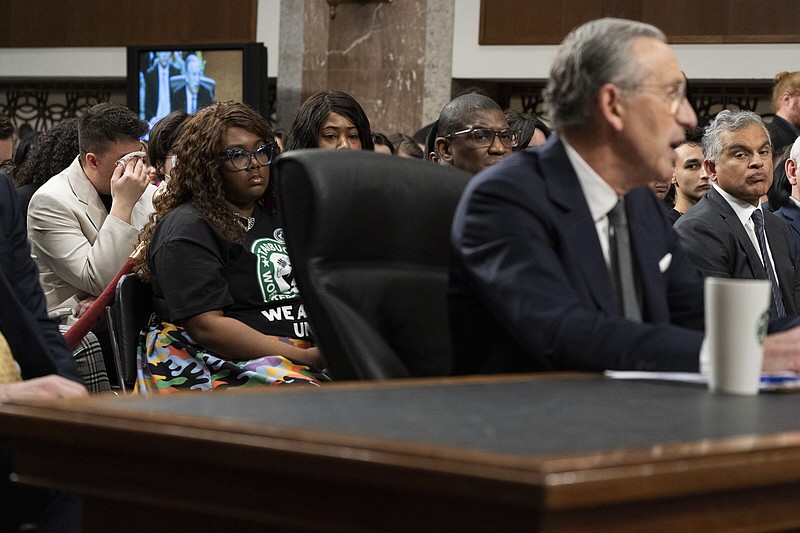Longtime Starbucks CEO Howard Schultz faced sharp questioning Wednesday before the Senate Health, Education, Labor and Pensions Committee as he defended the company's actions during an ongoing union campaign.
U.S. Sen. Bernie Sanders, a Vermont Independent who has been a vocal supporter of Starbucks labor organizers, accused the company of stalling efforts to reach a contract with workers who first voted to unionize in late 2021. Sanders also said federal courts and administrative judges at the National Labor Relations Board have found Starbucks guilty of firing labor organizers and illegally closing unionized stores, among other tactics.
"The fundamental issue we are confronting today is whether we have a system of justice that applies to all, or whether billionaires and large corporations can break the law with impunity," Sanders said.
Schultz appeared before the committee under threat of a subpoena. He denied the company has broken the law and said Starbucks is appealing those charges. Schultz said Starbucks respects workers' right to unionize but believes the company already provides its workers with industry-leading wages and benefits.
Schultz said Starbucks' average starting wage is $17.50, while the minimum wage in Vermont is $13.18.
"I think unions have served an important role in American business for many years. In the '50s and '60s, unions generally were working on behalf of people in a company where people haven't been treated fairly," Schultz said. "We do not believe that we are that kind of company. We do nothing nefarious. We put our people first."
Sanders has sought Schultz's testimony for months. Schultz had tried to sidestep the hearing, suggesting that others in the company were more deeply involved in labor matters.
But Sanders argues that Schultz, who stepped down as interim CEO last week but remains on the company's board, was instrumental in setting the company's policies. Under threat of a subpoena, Schultz appeared before the committee.
At least 293 of Starbucks' 9,000 company-owned U.S. Starbucks stores have voted to unionize including one Arkansas location in Fayetteville, according to the National Labor Relations Board. Starbucks Workers United, the labor group organizing the stores, has yet to reach a contract agreement with any Starbucks store.
Schultz said just 3,400 of Starbucks' 250,000 U.S. employees have elected to join a union. "About 1% of partners have chosen a different approach, as is their right under law," he said.
The unionization of Seattle-based Starbucks has been contentious. Earlier this month, a federal labor judge found that Starbucks violated labor laws "hundreds of times" during a unionization campaign in Buffalo, N.Y. The company is appealing the decision. Federal judges have also forced Starbucks to reinstate the labor organizers it fired at the Buffalo store.
Schultz, who led Starbucks from 1987 to 2000 and from 2008 to 2017, returned as interim CEO last April. Starbucks' new CEO, Lazman Narasimhan, told The Associated Press that he also believes Starbucks functions better without unions.
"I continue to believe a direct relationship with our partners is the best way forward," Narasimhan said.

